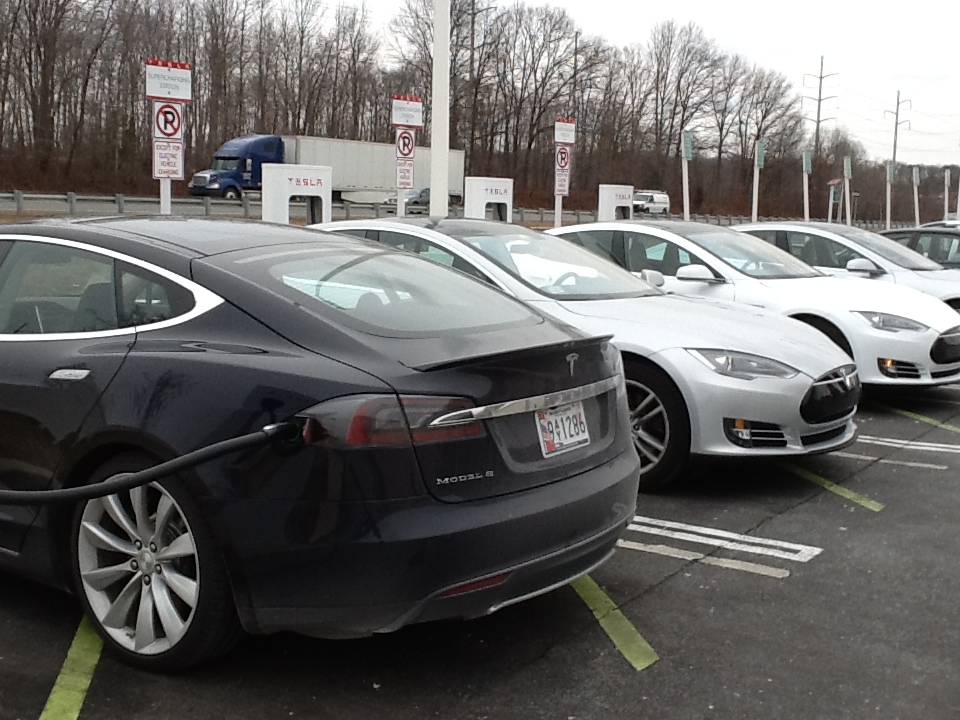Another month, another Tesla battle with auto-dealer lobbyists in another state—or so it seems in the company's ongoing battle to sell electric cars online directly to buyers.
This time, the action is in Connecticut, where on Monday the legislature's finance committee approved a bill letting Tesla do just that.
That bill is expected to lead to an intense battle in the state's House of Representatives.
DON'T MISS: Tesla takes it to Michigan, opens gallery in state that bans sales of its electric cars
Not unexpectedly, Connecticut's car dealers oppose the measure, although Tesla has no franchised dealers to be protected against potentially predatory practices by the company itself.
That protection was the original impetus for state franchise laws, now found in virtually all 50 states, that ban carmakers from selling vehicles to public where they would compete with existing franchised dealers.
Back in the days when most dealers were local businesses, owned by members of the communities in which they were located, that protection seemed like a no-brainer.
![State map showing where Tesla Motors can (blue) and can't (red) sell cars [Mojo Motors, Apr 2015] State map showing where Tesla Motors can (blue) and can't (red) sell cars [Mojo Motors, Apr 2015]](https://images.hgmsites.net/lrg/state-map-showing-where-tesla-motors-can-blue-and-cant-red-sell-cars-mojo-motors-apr-2015_100508933_l.jpg)
State map showing where Tesla Motors can (blue) and can't (red) sell cars [Mojo Motors, Apr 2015]
Especially given the donations to state legislators from dealer lobbying groups in every state.
And the public tended not to pay any attention to franchising laws for dealers, given the long period between purchases of new cars by most households.
Then came Tesla, which set up direct online sales at fixed prices—absent the haggling and bargaining that makes a majority of car buyers feel like they've gotten a raw deal from dealers, even if statistically they've gotten a pretty good price.
WATCH THIS: How Maryland's Tesla Sales Bill Really Got Passed: Sponsor Tells Story On Video (Apr 2015)
Starting in 2010 in Colorado, dealer lobbyists got franchise laws modified in many states—but not all—simply to ban any sales of new vehicles by any carmakers under any circumstances.
The Tesla model, apparently, was viewed as posing an existential threat to dealerships who had locked their role as the only place it was legal to buy a new car into state laws.
Today, many states—largely but far from exclusively more conservative or "red" states—ban such direct sales, while Teslas can legally be bought online in other states, often (but not entirely) the "blue" or more progressive states.

Tesla Road Trip from MD to CT, Feb 2013 - Tesla Model S cars at Delaware SuperCharger location
Buyers in that first group of states must order their cars for delivery in another state, and sometimes take delivery there. (States rarely prohibit Tesla from opening service outlets, meaning that such buyers can usually at least get their cars serviced locally.)
In Connecticut, dealer lobbyists are working hard to block passage of the approved bill by the full legislature.
Its proponents, on the other hand, note that state residents can easily and legally buy Teslas in New York or Massachusetts—which then garner the tax revenue from the sale of a car costing $70,000 or more.
CHECK OUT: Which Party Is Really Behind Tesla Sales Bans? Data Offers Clues (Dec 2014)
At present, most media reports suggest that the expected result of the voting is too close to call.
Supporters of the bill suggest, according to the Connecticut Post, that the bill could well be modified before it comes up for a vote in the state's House of Representatives.
One conceivable modification would be a cap on the number of permitted locations and a limit on how long they're authorized for.
That is the path taken in several states, where Tesla has often agreed to limit its stores to some number between two and six.
_______________________________________













